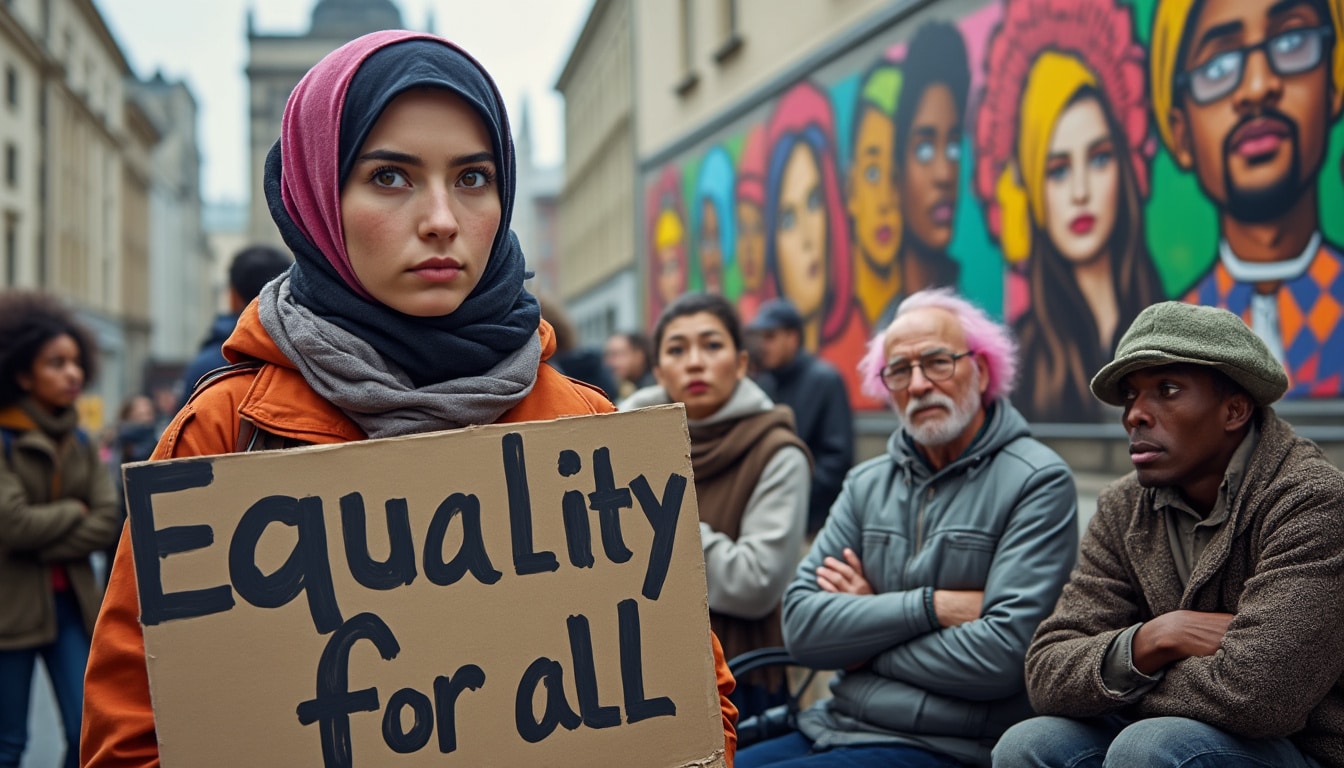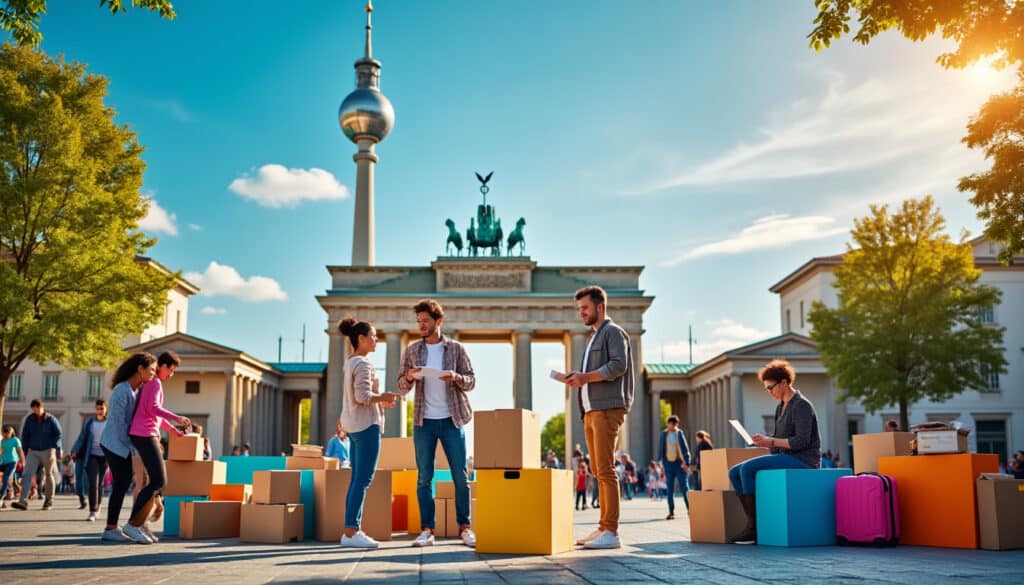The social fabric of Berlin is as vibrant and diverse as the infamous Berlin nightlife. Yet, beneath its dynamic surface lies a complex tapestry of social and discrimination issues. This article delves into the multifaceted nature of discrimination within the city and the ongoing efforts to foster inclusivity and equality among its 3.6 million residents.
Understanding the Scope of Discrimination in Berlin
Discrimination in Berlin manifests in various forms, impacting individuals based on skin color, religion, gender identity, sexual orientation, and more. The city, known for its multiculturalism and diversity, continues to grapple with the entrenched issues of racism and discrimination. Findings from the National Discrimination and Racism Monitor (NaRiDa), conducted by the German Center for Integration and Migration Research (DeZIM), revealed that instances of discrimination are not rare occurrences but are instead a pervasive part of the societal landscape. In a survey involving about 21,000 respondents, widespread reports of discriminatory experiences conveyed a clear picture of the challenges at hand.
More than half of Black people in Germany, as per the NaRiDa, have experienced racism at least once. This stark reality is further illustrated by the fact that nearly one in five women from this group have faced threats or harassment multiple times each year. Not only confined to racial dimensions, discrimination also affects individuals based on their religious beliefs and cultural practices. Muslim women who wear headscarves and Asian women have also reported notable instances of prejudice.
The repercussions of these discriminatory experiences are profound, affecting mental health, access to public services, and the overall sense of belonging. The director of DeZIM, Naika Foroutan, emphasized the link between repeated discrimination and anxiety disorders or depressive symptoms, which underscores the urgent need for systemic change.
- Increased anxiety and depression rates
- Reduced trust in public institutions
- Delays in medical treatment due to fear of discrimination
The Role of Institutional Support and Intervention
In response to these challenges, Berlin has established various institutional frameworks to tackle discrimination and promote equality. The Berlin State Office for Equal Treatment and Against Discrimination is a pivotal entity in this regard, tasked with the responsibility of enforcing anti-discrimination laws and policies. Their focus is on holistic solutions which include education, support, and reformative initiatives aimed at creating an inclusive society.
Public institutions, including healthcare and law enforcement, are essential pillars requiring continued scrutiny and improvement. Instances where racial or cultural factors influence one’s ability to receive adequate medical care or interact fairly with law enforcement points to systemic biases that need addressing. Initiatives are in place for providing anti-racism training to healthcare professionals and public servants to better serve a diverse populace.
Furthermore, Berlin’s legal framework offers a degree of protection against discrimination. The Constitution of Berlin explicitly outlines the illegality of discrimination on the grounds of race, gender, religion, or belief, among others. This legal mandate is supported strongly by organizations like Amnesty International Germany and Brot für die Welt, which advocate for human rights and social justice through awareness campaigns and community engagement projects.
- Key Organizations Committed to Social Justice in Berlin 🌍
- Kampagne für Menschenrechte
- Sozialverband Deutschland (SoVD)
- FRA (European Union Agency for Fundamental Rights)
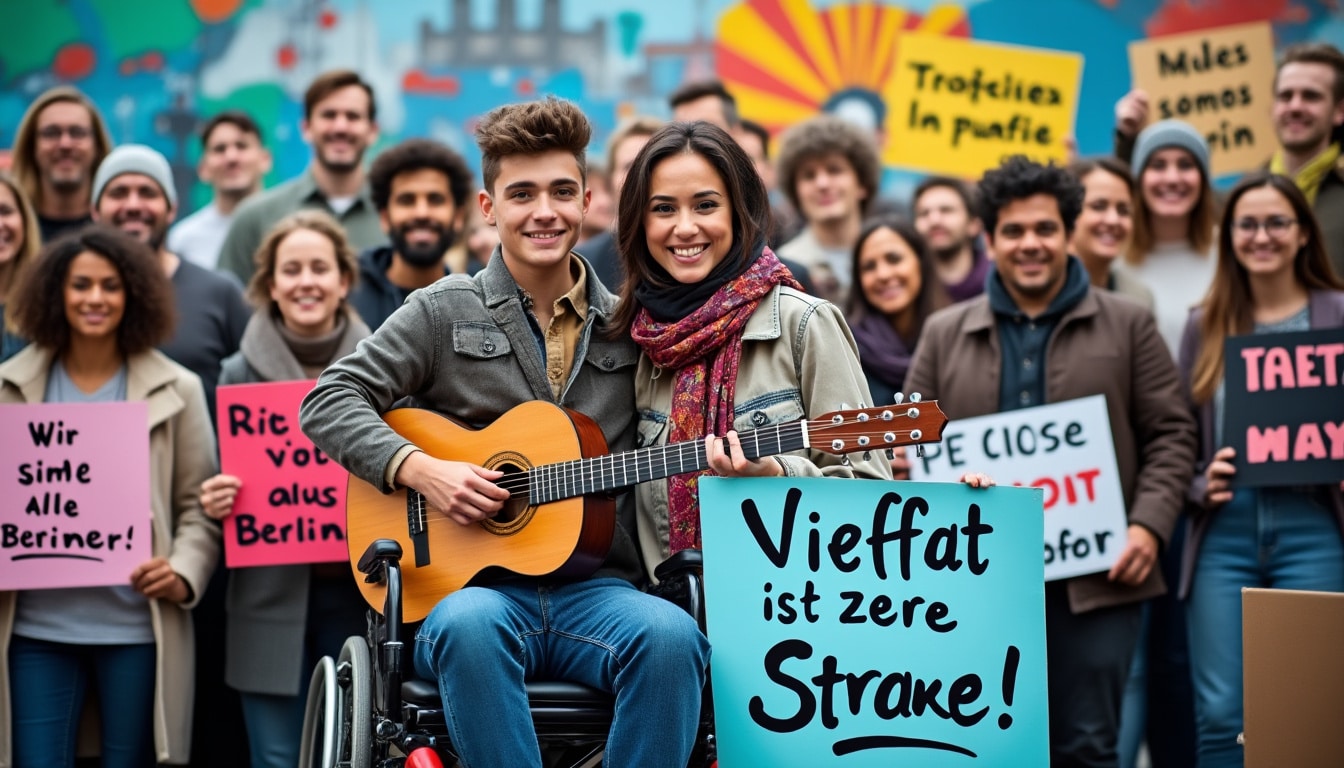
The Impact of Social Movements and Grassroots Initiatives
Grassroots campaigns and social movements play an integral role in combating discrimination in Berlin. These initiatives foster community dialogue, raise awareness about social injustices, and mobilize individuals towards collective action. In recent years, protests demanding social justice and inclusion have become increasingly visible across Berlin’s urban landscape. Such movements are gaining momentum, with leaders from various communities advocating for policy reforms, better representation, and societal acceptance of marginalized groups.
Among these efforts, the Berlin Refugee Council works tirelessly to address the challenges faced by refugees and asylum seekers. Their initiatives focus on providing essential support, legal assistance, and integration opportunities that help newcomers build a life free from discrimination. Similarly, Lesben- und Schwulenverband in Deutschland (LSVD) provides a voice for the LGBTQ+ communities, striving for equal rights and recognition, while promoting public awareness.
These grassroots efforts are complemented by systemic changes championed by local government and non-governmental entities. Collaborative partnerships between community organizations and state agencies amplify the impact of their initiatives, ensuring a wider reach and sustained influence.
- Organizing inclusive cultural events and festivals
- Creating safe spaces for marginalized communities
- Advocacy and policy change campaigns
Education and Awareness as Tools for Change
Education and public awareness are crucial components in the fight against discrimination in Berlin. Schools and universities are pivotal sites for fostering an understanding of diversity and cultivating acceptance among the younger generation. Initiatives aimed at incorporating diversity training in the curriculum aim to deconstruct stereotypes and encourage critical thinking about societal norms.
Various educational programs focus on teaching students about the realities of discrimination, the importance of civic engagement, and ways to become allies in combating bigotry. Educational institutions collaborate with organizations like Diversity Berlin to develop comprehensive programs that incorporate workshops, seminars, and real-world engagement opportunities for students.
Efforts to increase public awareness extend beyond the classroom. Community workshops, exhibitions, and public dials are established to create dialogue around these critical issues, encouraging active participation from all segments of the population. By leveraging media campaigns and social platforms, governments and NGOs strive to disseminate positive narratives and educate the public about the benefits of an inclusive society.
| Key Educational Initiatives 🎓 | Description |
|---|---|
| School Diversity Programs | Curriculum designed to foster inclusivity and understanding |
| Community Workshops | Sessions that encourage public dialogue and awareness |
| Media Campaigns | Campaigns centered on positive narratives and inclusivity |
The Future of Anti-Discrimination Efforts in Berlin
As Berlin marches toward an inclusive future, the city remains committed to eradicating discrimination and fostering equality. The Berliner Senat für Justiz und Verbraucher-Schützer continues to implement policies that promote social equity, while initiatives are being developed to address emerging issues such as antisemitism and ethnically-driven hatred.
Feedback from ongoing monitoring, such as DeZIM’s future surveys, will be instrumental in shaping policies and interventions. By maintaining engagement with community leaders, stakeholders, and individuals impacted by discrimination, Berlin aims to adapt its approach to ensure sustainable progress toward a discrimination-free society.
The collective will and effort of Berlin’s diverse population, driven by a shared goal of equality, positions the city as a dynamic hub of progressive action. As cross-cultural dialogue and understanding take root, Berlin is poised to further establish its legacy as a capital of diversity that fearlessly confronts its challenges to secure a brighter future for all its residents.
- Future goals for Berlin’s anti-discrimination efforts 📅
- Enhanced collaboration between government and NGOs
- Strengthening public education and awareness programs
- Commitment to regular monitoring and policy adaptation
FAQ
Does discrimination in Berlin only affect ethnic minorities?
No, discrimination impacts individuals across various lines, including ethnic minorities, religious communities, gender identities, and others.
What support is available for those facing discrimination in Berlin?
There are numerous support systems, including the Berlin State Office for Equal Treatment and Against Discrimination, and several NGOs offering legal assistance and advocacy.
How can I participate in social justice movements in Berlin?
Engage with local organizations, participate in events, or support campaigns led by groups like the Berlin Refugee Council and LSVD.
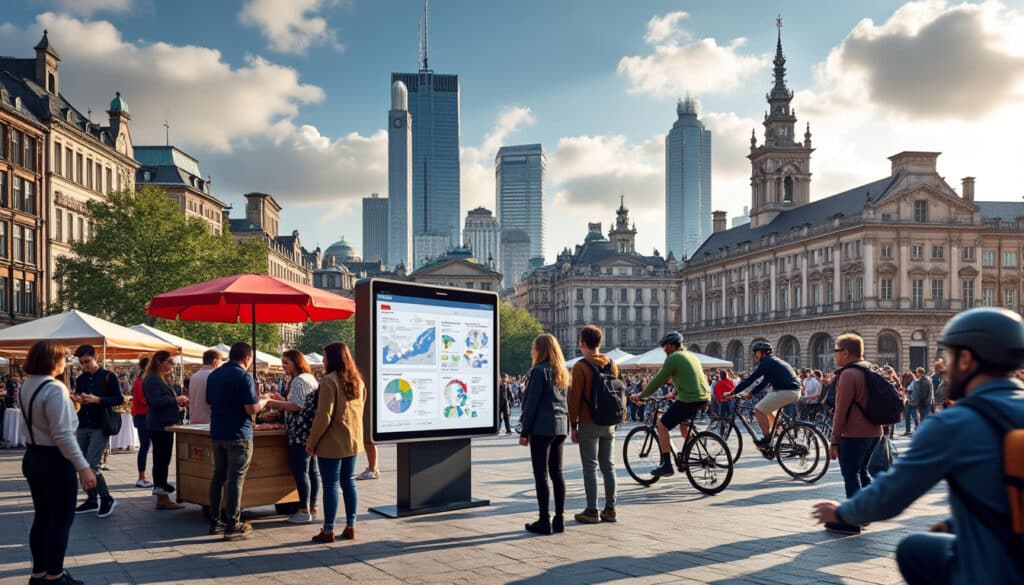
Legal Information and Rules in Berlin
Berlin, a city that stands as a beacon of culture and history in Europe, is also a labyrinth of legal intricacies that both residents and newcomers need to navigate. Whether you’re diving into the vibrant expat community or simply relocating…
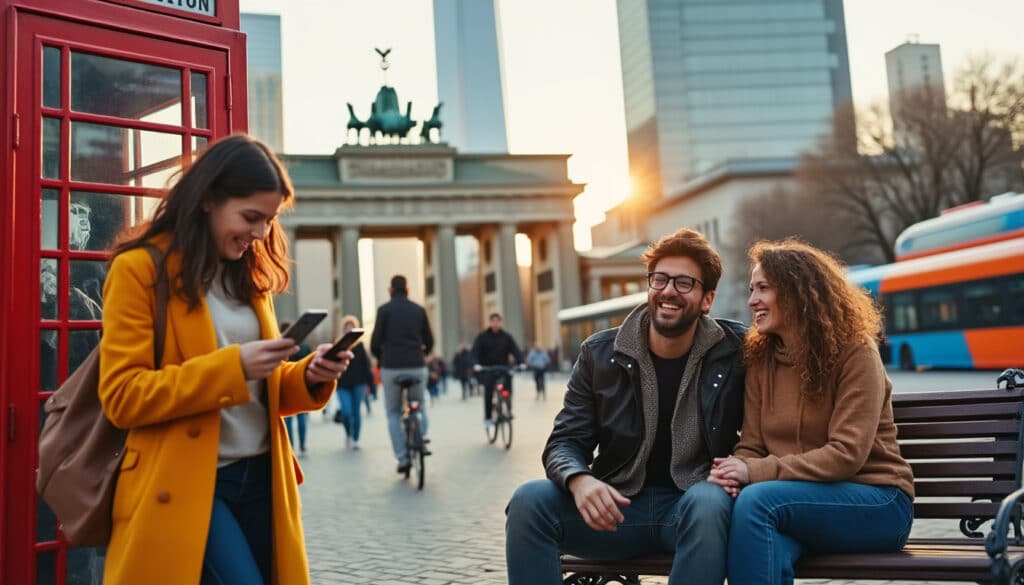
Calling and communication rules in Berlin
Berlin, a city pulsating with history and modernity, stands as a beacon of effective communication and diverse cultural interactions. Understanding calling and communication rules in Berlin is essential for anyone looking to connect smoothly with its locals, whether it’s for…
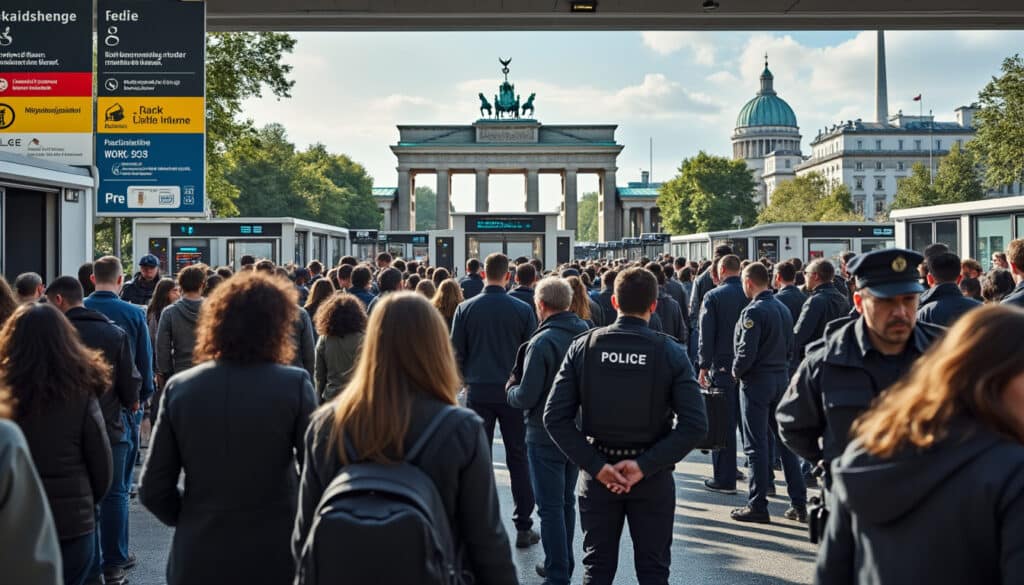
Criminal status and entry to Berlin
Navigating the intricate laws surrounding entry into Berlin while having a criminal record can be daunting. For travelers and potential residents with a past brush with the law, understanding how these records affect your chances of entry or returning to…
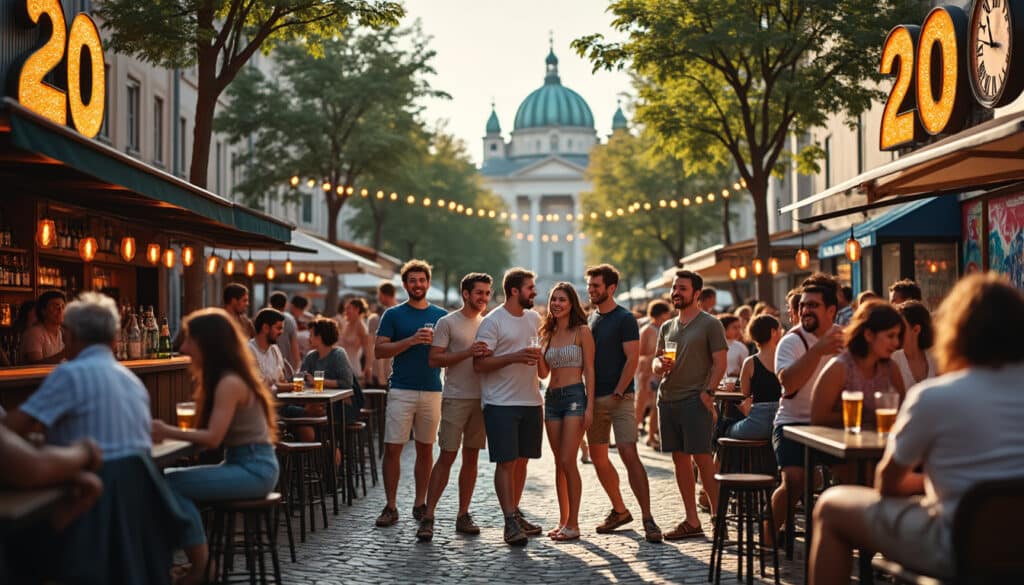
Drinking and age restrictions in Berlin
Berlin is a city that exudes a unique blend of history, culture, and a liberal approach to social norms, particularly when it comes to alcohol consumption. The capital city of Germany is famous not only for its rich past and…

Berlin, a city teeming with vibrant culture, historic landmarks, and a plethora of festivities, offers an intriguing array of holiday experiences year-round. From public holidays steeped in tradition to school breaks inviting exploration, Berlin’s holiday calendar is a gateway to…
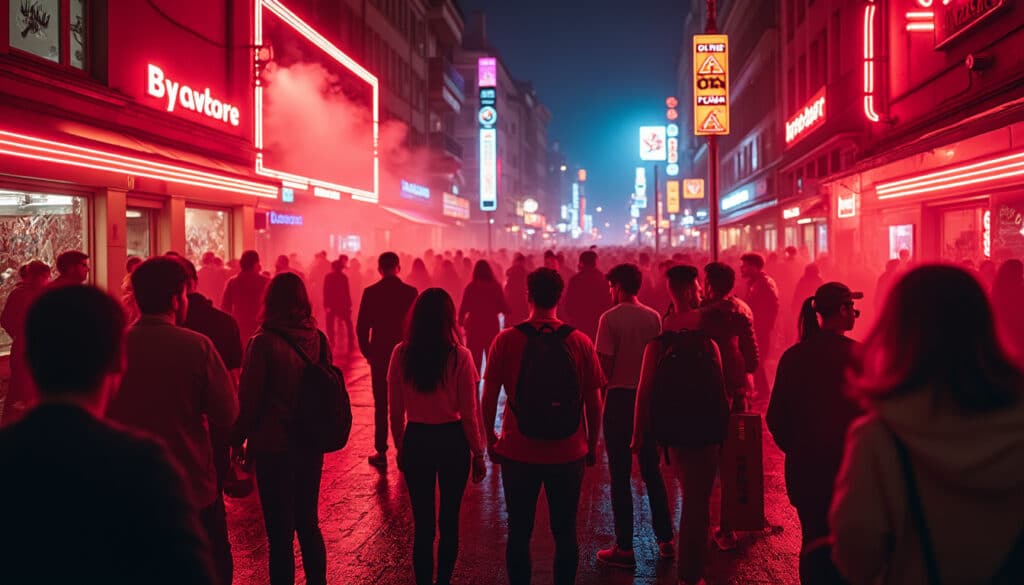
Smoking, drugs, and red light laws in Berlin
Berlin, known for its vibrant culture and historic significance, is a city that has always been at the forefront of policy shifts and progressive change. As the capital of Germany, Berlin is often seen as a microcosm for the country’s…

